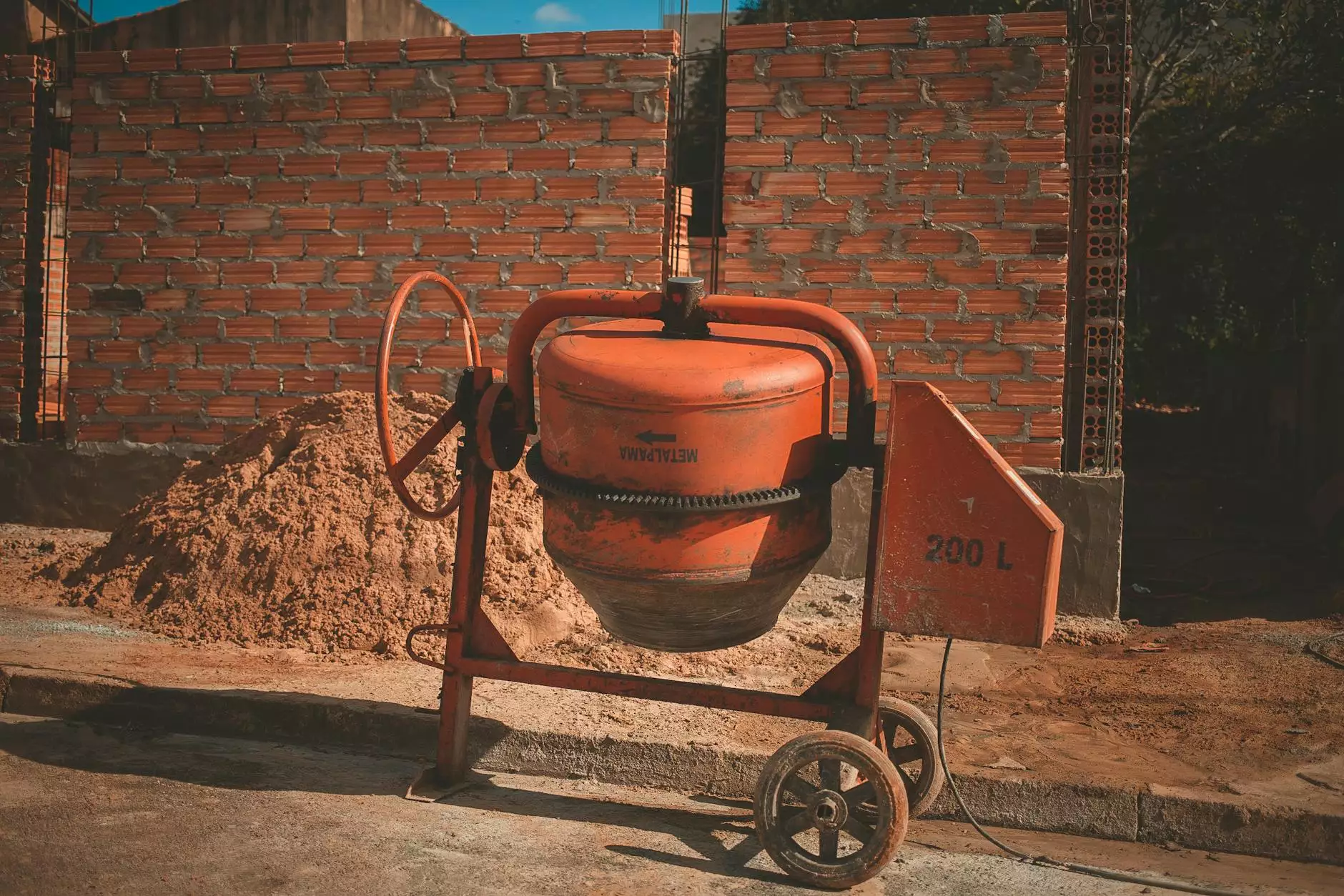Understanding the Hydraulic Main Pump in Excavators: A Comprehensive Guide

The hydraulic main pump excavator is the beating heart of an excavator's hydraulic system, playing a pivotal role in the equipment's overall performance and efficiency. In this extensive article, we will delve into the intricacies of hydraulic main pumps, including their components, functions, advantages, and maintenance practices, ensuring you have a clear understanding of how they contribute to the functionality of excavators in various applications.
What is a Hydraulic Pump and Why is it Important?
A hydraulic pump is a mechanical device that converts mechanical energy into hydraulic energy. In the context of excavators, the hydraulic pump is crucial because it generates flow and pressure within the hydraulic system. This pressure is needed to power various hydraulic components such as actuators, motors, and valves. The hydraulic system allows excavators to perform heavy-duty tasks that would be impossible using conventional mechanical systems.
Functions of the Hydraulic Main Pump
The hydraulic main pump excavator serves several vital functions, including:
- Power Generation: The main pump generates the hydraulic power needed to operate the machine’s hydraulic circuits.
- Flow Control: It regulates fluid flow to different components, such as the boom, arm, and bucket.
- Pressure Generation: The pump maintains the necessary pressure levels for effective operation, which is crucial for tasks such as digging and lifting.
Components of a Hydraulic Main Pump
Understanding the components of a hydraulic main pump is essential for appreciating its function:
- Gear or Vane Mechanism: Most hydraulic pumps operate using gears or vanes to create fluid movement.
- Drive Shaft: This component connects the pump to the engine, transferring power.
- Reservoir Connection: It links the pump to the hydraulic fluid reservoir, allowing fluid to flow to and from the pump.
- Pressure Relief Valves: These protect the hydraulic system from overpressure, ensuring operational safety.
Types of Hydraulic Pumps Used in Excavators
There are several types of hydraulic pumps commonly used in excavators, each with its advantages:
- Gear Pumps: Simple and cost-effective, gear pumps are known for their durability and efficiency in fluid transfer.
- Piston Pumps: Offering high efficiency and pressure capability, piston pumps are ideal for large excavators that require significant hydraulic power.
- Vane Pumps: These pumps are known for their smooth operation and are commonly used in smaller excavators.
The Advantages of Hydraulic Main Pumps in Excavators
Hydraulic main pumps offer numerous benefits that enhance the overall performance of excavators:
1. Enhanced Performance
The hydraulic system allows excavators to perform a wide range of functions efficiently, from digging deep trenches to lifting heavy materials.
2. Precision Control
Hydraulic systems provide operators with fine control over the excavator's movements, enabling precision work in confined spaces.
3. Increased Productivity
With the ability to lift and move heavy loads, hydraulic pumps drastically increase an excavator's productivity on construction sites.
4. Versatility
Excavators equipped with hydraulic pumps can be outfitted with various attachments, such as grapples and buckets, extending their functionality.
Maintenance of Hydraulic Main Pumps
To ensure longevity and reliability, regular maintenance of the hydraulic main pump is crucial:
Scheduled Inspections
Regular inspections can help identify any potential issues early on.
Fluid Checks
Ensure that the hydraulic fluid is at the appropriate level and free of contaminants.
Replace Filters
Changing hydraulic filters at regular intervals is essential to prevent debris from damaging the pump.
Monitor Performance
Operators should be trained to recognize changes in performance that may signal maintenance needs.
Common Issues and Troubleshooting Tips for Hydraulic Main Pumps
While hydraulic main pumps are generally reliable, they are not immune to problems. Some common issues include:
1. Low Pressure
Low pressure could indicate wear in the pump or leaks in the hydraulic system. Inspect the system thoroughly for leaks and check the pump's integrity.
2. Overheating
Overheating can be caused by low fluid levels or contamination. Ensure proper fluid levels and clean hydraulic fluid to prevent overheating.
3. Unusual Noises
Strange noises might suggest cavitation or mechanical failure. Investigate any unusual sounds immediately and take corrective action.
Choosing the Right Hydraulic Main Pump for Your Excavator
When selecting a hydraulic main pump, consider the following factors:
1. Compatibility
Ensure that the pump you choose is compatible with your specific excavator model.
2. Performance Specifications
Look at the flow rate and pressure specifications to ensure they meet your operational requirements.
3. Brand Reputation
Select pumps from reputable brands known for their reliability and performance. Consider brands that offer robust customer support and warranty options.
Conclusion
The significance of the hydraulic main pump excavator cannot be overstated. These pumps are integral to the functionality, efficiency, and versatility of excavators, facilitating a wide range of applications in construction, mining, and beyond. By understanding the components, advantages, and maintenance practices, businesses can ensure that their hydraulic systems operate at peak performance, greatly enhancing their productivity and effectiveness on the job site. Stay informed and proactive in your maintenance routines to ensure your hydraulic main pump continues to perform reliably for years to come.
Shop for Hydraulic Parts at ShopHydraulicAmerica.com
If you are looking for high-quality hydraulic parts and supplies, including hydraulic main pumps, visit ShopHydraulicAmerica.com. Our extensive inventory covers everything you need to keep your equipment running smoothly. Experience unparalleled customer service and quality products to help you maintain your excavators and other hydraulic machinery.









